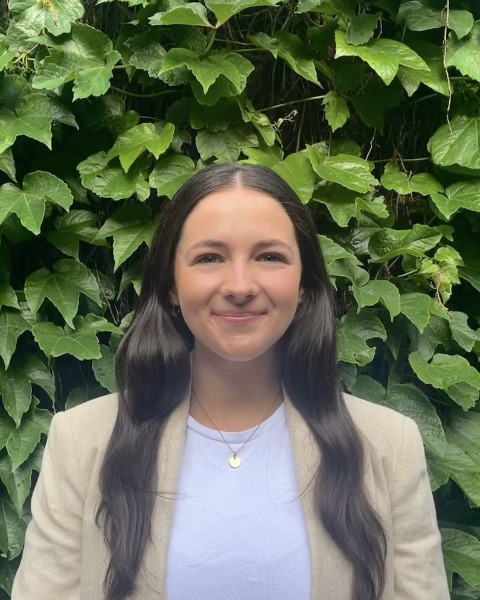Health Services Research
Session: Health Services Research Works in Progress
WIP 114 - “If you look for a problem, you’ll find one”: A Qualitative Study to Understand Why Parents Decline Genetic Secondary Findings for their Child or Themselves
Saturday, May 4, 2024
3:30 PM - 6:00 PM ET
Poster Number: WIP 114
Publication Number: WIP 114.925
Publication Number: WIP 114.925

Abigail Hansen (she/her/hers)
Clinical Project Research Assistance
The Hospital for Sick Children
Toronto, Ontario, Canada
WIP Presenting Author(s)
Background: Genome-wide Sequencing (GWS) allows for identification of disease-causing variants and may reveal secondary findings (SF). SF are variants in genes unrelated to the indication for testing but associated with risk for other medically actionable conditions. As GWS becomes increasingly available in pediatric settings, so does SF identification. Genome-wide Sequencing Ontario (GSO) is a clinical GWS service in Ontario, Canada that reports SF associated with actionability in childhood for all pediatric patients enrolled. Reporting SF actionable in adulthood is optional.
Objective: This study aims to explore decisional factors and characteristics of parents who decline reporting of SF. It aims to guide clinical practice and policy for reporting SF in pediatrics.
Design/Methods: Among those offered SF through GSO (n=2056), at least one family member declined to receive SF in 10% of cases (n=215). Parents who declined to receive SF are eligible. Eligible parents across 13 GSO sites are invited to complete a semi-structured interview asking about their understanding of GWS/SF and factors influencing their decision (e.g., psychological/insurance concerns, cultural/religious beliefs). Parents are asked to complete a demographics questionnaire. Interviews are recorded and transcribed for thematic analysis. The study has received provincial ethics approval through The Hospital for Sick Children Board of Record. All interviews will be completed by March 2024. To date, six parents have enrolled, and five interviews have been completed. Parents believed having the choice to decline SF was important. Mandatory reporting of SF actionable in childhood triggered mixed reactions. Often, parents made different decisions about accepting optional SF for themselves, compared to their children, due to stress or personal preference. Parents reported concerns about anxiety/possibility of heightened medical attention influenced their decision. Receiving SF while attending to medical complications for their child was described as overwhelming. Findings may inform practice in pediatric genomics.
